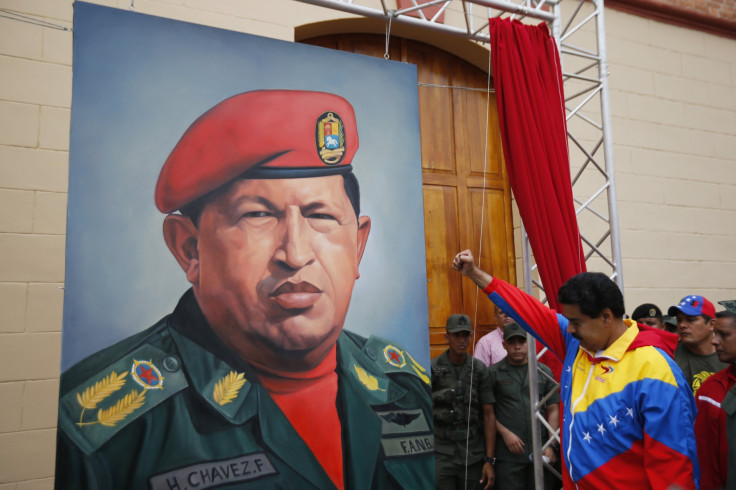Venezuelan President Nicolas Maduro Names Army General As Head Of Ministry Of Finance, Declares War On Economic Crisis

President Nicolás Maduro has declared war on the economic crisis that has gripped Venezuela for years and has worsened since the passing of his predecessor, Hugo Chávez, in early 2013. And to usher in the new year, he has named an Army general to head the nation's economy.
Rodolfo Marco Torres, currently Public Banking minister, will replace Nelson Merentes as Finance minister. The general, who took part in Chávez’s failed coup attempt in 1992, is expected to be more ideologically aligned with the regime than the more pragmatic Merentes.
The move is Maduro’s most significant decision to protect the Socialist economic model started by his predecessor. “Constructing this model is the priority of the revolution in the next five years,” said the president at the end of a televised interview on Wednesday.
Another issue the government is hitting headfirst is the currency. The Venezuelan bolivar was the most devalued of Latin American currencies, dropping almost 32 percent in 2013 against the American dollar, and Maduro is determined to stop the fall.
The current official exchange rate is 6.3 bolívares per $1, and the government will keep that rate for the whole of this year -- literally, since the government will take control of the currency from now on. The former Comisión de Administración de Divisas (Currency Administration Commission) has been dismantled, and the National Center of Foreign Commerce within the Ministry of Finance will make decisions on how to handle currency issues.
Analysts say, however, that a devaluation is long overdue to rectify distortions in Venezuela’s economy.
Another focus for Maduro in 2014 will be security in the country, brought to attention after the murder of beauty queen and soap opera actress Monica Spear and her family. “This year will be the start of social peace,” said Maduro, whose plan to reduce crime will be presented on Feb. 4.
© Copyright IBTimes 2024. All rights reserved.











